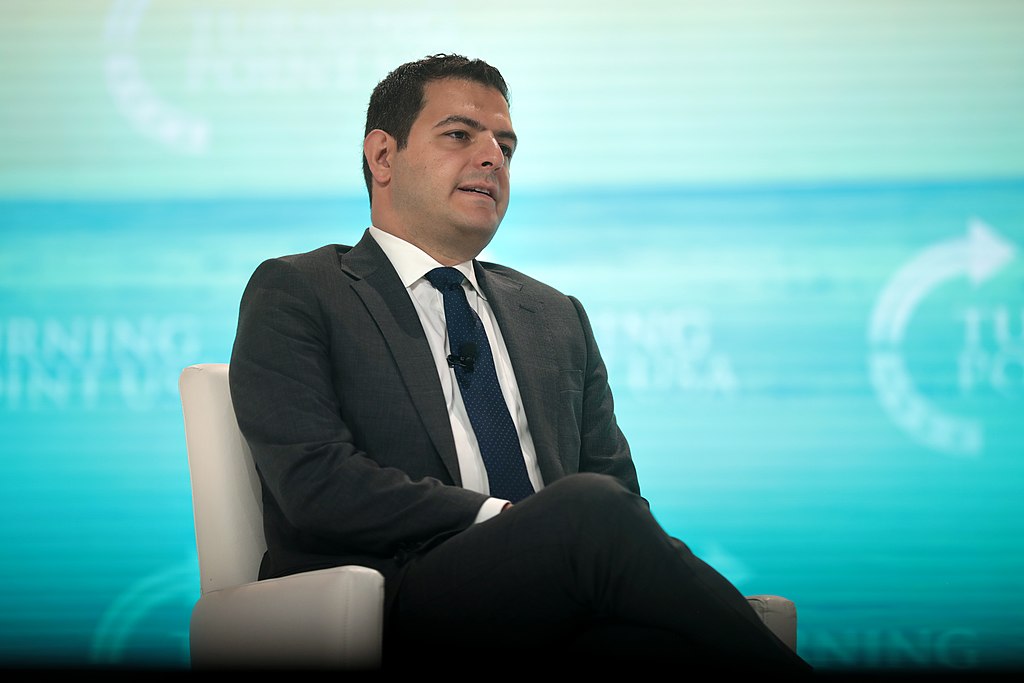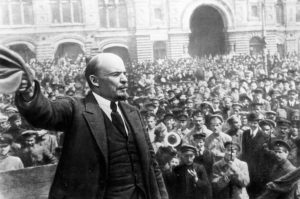Small literary and political journals are having a moment. The latest to enter the fray, Compact, aspires to be a sort of post-liberal melding of big-government conservatism with left-wing economics. An invite for the launch party arrived via email last week and, as you know, Cockburn tries to never miss a party, especially in our shattered post-Covid social milieu.
Getting out of his Uber, your correspondent was reminded of the new world we live in, as his Ukrainian driver asked why he was being dropped off at a place called KGB Bar. Cockburn mumbled some answer that made no sense about socialists in New York finding it clever and sheepishly slunk out of the car.
The selection of KGB Bar certainly wasn’t a mistake. A mainstay of the East Village, it’s host to book parties, literary readings and all manners of salons, usually by leftist literary types looking to burnish their Marxist bona fides. If your commitment to Stalin is in the name, you must be a true believer! Compact, founded by two Catholic converts and a Marxist hoping to establish their credibility as decidedly Not That Kind Of Conservative, is no different.
Covid protocols were fully out of force — not a vaccine card or mask in sight and people pressed shoulder to shoulder in a small, dimly lit bar on the top floor of an East Village walk-up. New York is back.
Immediately upon entering, Cockburn overheard one of the magazine’s co-founders, Edwin Aponte, musing about where he would hang his framed New York Times profile that was just published upon their launch. The image of three bros staring down the camera sitting in a bar in tufted leather booths, martinis in hand, caused a stir on Twitter. This may be why, when the founders took the stage to make a few remarks, they brought out one of their female contributors to accompany them.
Sohrab Ahmari, another co-founder and formerly of the New York Post, started with a rousing manifesto on why the magazine exists. It’s easy to see why Ahmari and company were able to convince an investor to take a chance on a small political journal. And it certainly couldn’t have been a small amount of money — Compact launched with a beautiful and polished website designed by the famed agency Pentagram, which normally doesn’t get out of bed for less than $100k.
Matthew Schmitz, the third co-founder and formerly of the Catholic magazine First Things, closed things out with a heartfelt reading of a psalm.
Around the room was a coterie of notable names. Brooke Rogers of the New York Post was ensconced at a table, holding court with two or three other women, all looking like they were having a great time. Park MacDougald, an editor at UnHerd, was spotted across the room, standing around aloofly looking for a better conversation. David Marcus, formerly of the Federalist and the Post, was hanging around the bar, water glass in hand.
The left and right were fully represented: dirtbag leftists, journalists, book publishers, conservative think tankers in ill-fitting suits, leftist podcasters in jean jackets and messy hair, theocons dressed like they were heading to Wednesday Mass and of course lowly party correspondents. If the manner of dress didn’t tell you the tribe you identified with, the type of handshake certainly did. Cockburn experienced several dead-fish grasps from people who definitely live with roommates in Brooklyn.
Helen Andrews from the American Conservative was seen wandering around, presumably expounding on the themes of her excellent new book on why boomers are terrible. The book’s editor Bria Sandford was prowling the room looking for the next big thing to publish. Methinks she came up empty-handed.
Mingling with the crowd, Cockburn was reminded why, though he never misses a party, he sometimes wishes he did. Debates abounded over the meaning and direction of conservatism and where random Twitter blue-checks fit on the political horseshoe. One person idly wondered how many people in the room he had called a Jew on Twitter (all the more suspicious given that Compact inadvertently shares its name with a German neofascist title), while another mentioned he was having a hard time because he only recognizes people by their avatars.
On his way out, Cockburn clocked Sam Adler-Bell of the popular and excellent podcast Know Your Enemy, in which its leftist hosts dissect political movements on the right, on his third or fourth cigarette, deep in conversation with Ahmari. Presumably he was getting to better know his enemy.


















